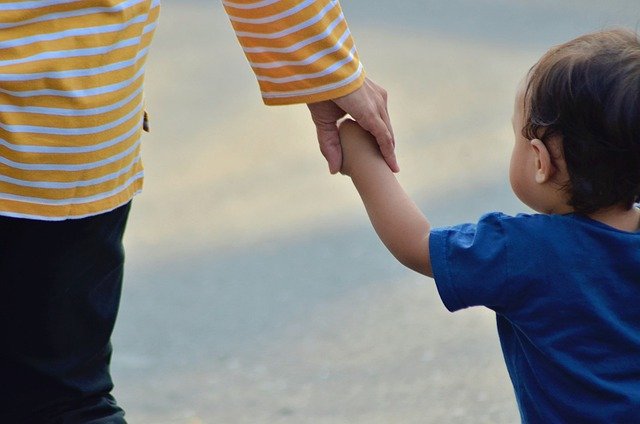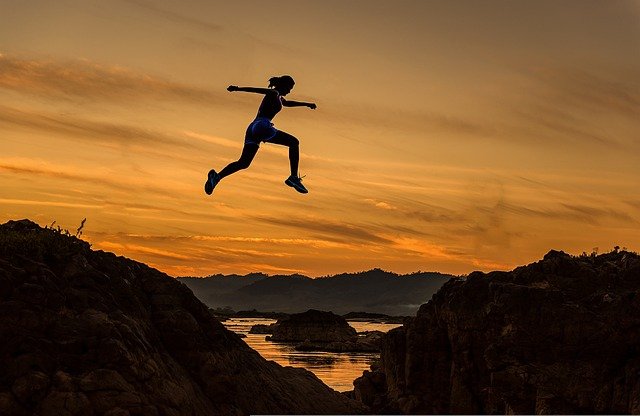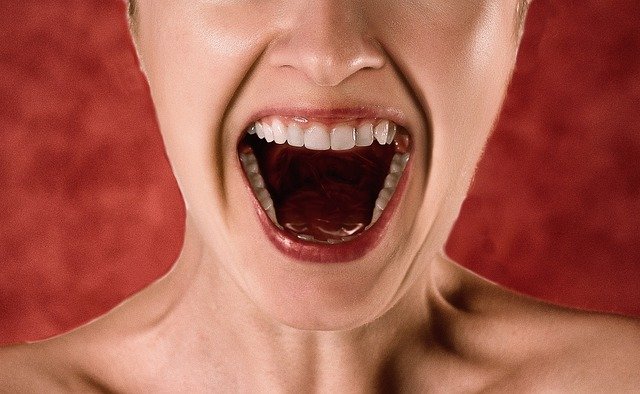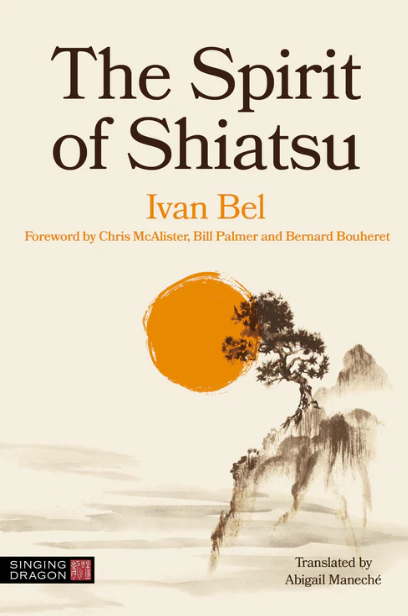The definition of courage varies a lot in different times, societies and cultures, but in this article we are interested in courage in our art of Shiatsu. Does it take courage to practice Shiatsu? Is there a courage of the practitioner and a particular courage for the receiver? Does the treatment require courage? By illustrating his point with stories of treatment, the author addresses these crucial questions in order to understand the commitment that Shiatsu requires for both protagonists: the practitioner and the patient.
Article published in the Shiatsu Therapy Australian Association’s Pointers magazine, June 2022
It was a grey and rainy spring day, like many others in Brussels, where I have practised Shiatsu for 14 years. One of my patients told me about her problem: she couldn’t get pregnant a second time and had started an in-vitro fertilisation process for the eighth time, without success. I admired her fierce will to have a child, but at the same time I could not help
thinking that if nature had not granted her this possibility, there must be a good reason. “Will you help me with my ninth IVF?” she said. “I’m thinking of starting in a fortnight.” I was known at that period to be relatively competent at helping women conceive. Out of 100 cases, 98 of them were eventually able to deliver a child. I received birth announcements
from every grateful mother, so I have a drawer full of all those cards. For three years in a row, I was even the subject of a diploma theses by midwives at the University Hospital of SaintLuc, the largest hospital in Brussels.
I asked the woman to postpone the start of the IVF for two months and to come every week, to help her as much as possible. Finally, she managed to get pregnant and it was a great moment of joy for her. But some time later it was discovered that the embryo was developing on the scar from the previous delivery. The doctors decided to chemically abort her, which was a great psychological and physical pain for her.
After a month of crying, she asked me to help her prepare for her tenth IVF. After a silence, I told her “No. If nature didn’t want it, I shouldn’t insist. The greatest courage today is to accept this.” She insulted me for 5 minutes and she left in a rage after throwing the session money in my face and spitting on the tatami. I was very sad.
A month later, her husband called me for help. She had suddenly developed a double breast cancer that was spreading like wildfire. Could I help her heal? My answer was “No, but I could help her mitigate the side effects of the chemotherapy that was sure to follow”. She had both breasts removed and I came to her bedside every week to help her through the pain of the
treatment. Then eventually she recovered thanks to hospital care and her will to fight.

A year later, she came back to my practice asking to speak with me. She apologised for her behaviour and wanted to tell me her story:
“I come from the deep countryside of a Nordic country. As you know, I have a daughter. She is 12 now. In my family
there was a kind of curse that in every couple every second child died. As I only have a daughter, I thought that she might die
and then I would have no children at all. I absolutely had to have a second child.
“My best friend in Brussels was my neighbour. At that time, I had been trying to have a second child for years. One day,
my friend happily came to tell me that she was pregnant. My world fell apart. I shut the door in her face and never wanted to see her again. In rage and despair, I began to scream alone in the house. I start to bang my head against the kitchen sink until I broke it and passed out bleeding. I wanted to die for not having been able to protect my daughter from certain death. That’s when my husband found me.
From then on, I went through IVF after IVF. I couldn’t accept your refusal. Now I need your help to accept and let go, because this story has been hurting me for over 10 years.”
Patients’ courage
I am writing this story today to tell you about courage in Shiatsu. After more than 20 years of practice, I have come across the most disarming, the saddest and the most joyful human stories. But above all, I have witnessed the courage of the
patients, the real courage. René Ouvrard — a French author from the 17th century — in his book “Débâcle à la Romaine” says:
“Courage exists only where there is good sense and not the irrational impulse of a moment. In a fit of pique, one cannot
perform a brilliant action, but true courage requires patience and renunciation.
This is exactly what happens with our patients. The first act of courage is to come and see a therapist about whom you know nothing and who is not a regular doctor. The second act of courage is talking about one’s physical pain and then one’s psychological suffering; telling one’s intimate, family or professional story, the one that hurts. The third is to accept to work on
oneʼs fears, oneʼs blockages, oneʼs wounds. The fourth requires perseverance at the height of the therapy, when doubt and suffering are raging. The fifth is to be reborn and to restart life with a new perception of oneself.
What courage it takes to shed old skins, old fears, old habits. As Forrest Gump says in the film of the same name: “Life is like a box of chocolates. You never know what you gonna get!” You know what you have, not what you’re going to get. Or what youʼre going to become. But this courage is the only way to achieve resilience, i.e. to have the strength to overcome
a trauma. All human beings on this planet are called upon to suffer, it is our common lot with illness, old age and death. But not all human beings have the strength to overcome its suffering. And this is where Shiatsu is an important tool to help people.
Why is it so important? Because it is noninvasive, it has no or only brief side effects, it respects all layers of the human being, and above all, because it does not force anything. It simply gives support, like a cane that is used for the time it takes to heal, to cross a particularly complicated path. And always by the patient’s side, during this crossing, is the empathetic presence of a practitioner who does not judge, who accompanies and liberates.
The woman got rid of her obsession about having a second child to somehow honour the family curse. Her only daughter is now a beautiful young woman who is studying, and her mother has finally turned her full attention to her. She was able to return to work after a long recovery and breast reconstruction. Since then, as it is often the case after such a
shock, she is very interested in complementary therapies and is training in hypnosis and therapeutic touch. Because when you are deeply transformed, you realise that the ordeals were in the end opportunities, offered to push you to improve yourself. Finally, she went to see her neighbour and tried to rebuild the relationship with her by agreeing to see her child.

Practitioners’ courage
The great American teacher Stephen Brown once told me that doing Shiatsu was “like going to war naked”. And it is true!
We Shiatsu practitioners are completely naked in the face of pain, illness or psychological disorders. We cannot hide behind tools, not even a simple acupuncture needle. We only have our hands. And our hands only transmit what we are. It takes courage to say to yourself one day, “Hey, I’m going to take care of others without any tools, without anything other than what I
am”. It’s not a job; it’s an act of faith.
Fortunately for us, even as students, we quickly realise that the Shiatsu technique is powerful enough to get results quickly. But since our hands only transmit what we are, this forces us to continuously work on our body, our mind and our knowledge, as well as our skills. And to do this over a lifetime requires a commitment that requires courage. But the practitioner’s greatest courage is that which allows him to accompany the suffering of others without suffering himself or being insensitive to that of others. It is a delicate balance to find, which requires a great deal of work on oneself. Sometimes patients force us to
dig within ourselves to find resources.
I once treated a woman who had been raped for years when she was a teenager. Psychoanalysis had helped her to understand the full extent of her trauma, but her body would not let her alone. All sorts of symptoms continued to
plague her some 25 years later. At the first appointment, I asked her why she had come. She immediately went into a terrible
rage and said, “So that’s how it is! You want to know; you want to know everything already? They are all aggressors; all men are the same!” And she told me her abominable story in one go.

One hour later she thought it was a wonderful Shiatsu session, but for me it was the beginning of a nightmare. I began to dwell on the story, to be scarred, to lose sleep and my appetite. I had only two options: to stop the treatment and refer the patient to a more experienced practitioner or to search within myself why I was so affected.
With the help of a psychotherapist friend and another Shiatsu practitioner, I experienced what is called a “psychological breakthrough”. In other words, I had been displaced from my role as a practitioner wanting to help a person to that of a man associated with male abusers. This violent shift in my role was not intended by the patient, but the damage was done. If
there was suffering in me in relation to my patient’s story, it was because there was a gap.
The combination of psychotherapy and Shiatsu allowed me to quickly unblock the situation and to continue the treatments with serenity. But it took, as with all our patients, the courage to go into my memories and wounds, to put myself back into my neutral and empathetic role as a shiatsushi [practitioner/expert]. Thanks to this personal work, the treatments continued
and the person even became one of my students and graduated four years later. There was no miracle, the memories were still present in her. But she was able to live more calmly with men, to make plans and even to start a couple’s life.
If there is a conclusion to all these stories, it would be this: Shiatsu is above all a relationship between two people. But human
relationships are complex, exciting, rewarding and challenging. One can feel discouraged when faced with the immense scope of human suffering and the demands it makes on practitioners. But if one finds the courage to support one’s fellow man and to confront oneself, then Shiatsu becomes a beautiful path that leads both people to more light and humanity.
Good practice!
- A Milestone: The 2025 ESF Symposium in Brussels - 24 March 2025
- Austria – 19-21 Sept. 25: Shiatsu Summit in Vienna – chronic fatigue, burnout & depression - 19 December 2024
- Terésa Hadland interview: Shiatsu at core - 25 November 2024
- Book review: “Another self” by Cindy Engel - 30 September 2024
- Austria – 24-26 Oct. 25: Master Class in Vienna – Shiatsu and martial arts - 20 August 2024
- France – Lembrun Summer Intensive Course – July 6 to 12, 2025: Digestive System Disorders, Advanced Organ Anatomy, and Nutrition - 4 August 2024









